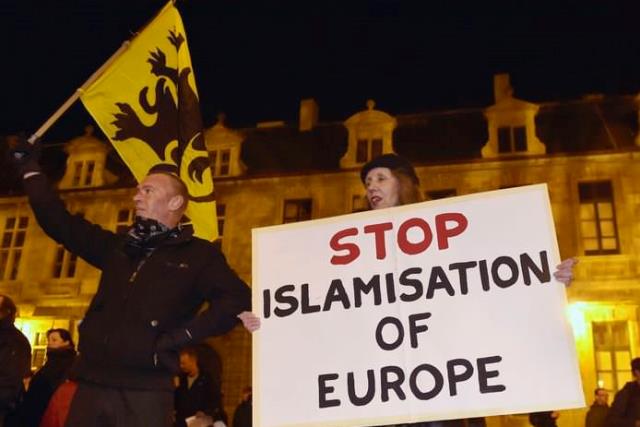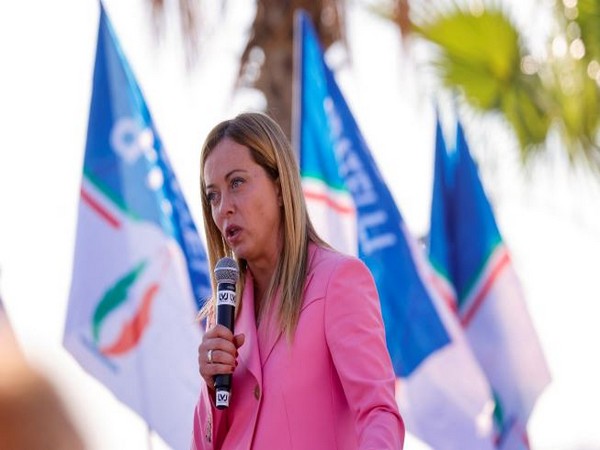Italy’s Prime Minister Giorgia Meloni is often in the news for making bold statements, but she recently scoffed at Islamic culture and said that there is no place for it in Europe. She says there is no place for Islam in Europe: ‘There is a problem of compatibility’
Her comments were made at a political festival organised by her far-right party – the Brothers of Italy, in Rome, which was attended by the British Prime Minister Rishi Sunak and X’s owner Elon Musk, too.
In her speech Meloni said, “The Islamic cultural centres in Italy are financed by Saudi Arabia where Sharia is in force. In Europe, there is a very Islamisation process distant from the values of our civilisation! I believe that there is a problem of compatibility between Islamic culture and the values and rights of our civilization.”
Meanwhile, an old video of her also re-surfaced on various social media platforms that shows her saying she would not allow Sharia law to be implemented in Italy. Meloni also criticised Saudi Arabia for its strict Sharia Law.
“I believe that these should be raised, which does not mean generalising on Islam. It means raising the problem that there is a process of Islamisation in Europe that is very distant from the values of our civilisation,” she added.
During his speech at the event, Rishi Sunak said that he would push for global reforms to the asylum system while warning that the threat of a growing number of refugees could ‘overwhelm’ parts of Europe.
He even warned that some ‘enemies’ were deliberately ‘driving people to our shores to try and destabilise our societies’.
“If we do not tackle this problem, the numbers will only grow. It will overwhelm our countries and our capacity to help those who actually need our help the most,” Rishi Sunak said, adding, “If that requires us to update our laws and lead an international conversation to amend the post-war frameworks around asylum, then we must do that.”
Meanwhile, Tesla’s founder and X’s owner Elon Musk marked a rare appearance as he met world leaders at the annual gathering. “Immigration isn’t enough to combat population shrinking,” he said at the event, explaining: “There is value in cultures, we don’t want Italy as a culture to disappear, we want to maintain a reasonable cultural identity of those countries or they won’t be those countries.”
Analysing the speeches given by these three leaders, makes it clear that not only political leaders alone but even business leaders are increasingly turning to Islamophobia, based on their belief systems and also converting political issues to anti-Islam utterances, to gain public support.
Both Sunak and Musk couched their Islamophobic feelings into anti-immigrants policies. This could be partly blamed to these countries’ own doing. Firstly, various European nations opened their doors for immigrants from the Muslim dominated countries.
The migrant’s flow to many western countries increased as the increasing prosperity there was matched with no desire to engage in menial jobs at lower wages, gaps which were filled by the migrants. Further, they allowed Muslim immigrants entry to assuage their own guilt feeling, as many of the migrants fleeing their homes were coming from those countries where these countries had started or were supporting wars against the so-called radical or Islamist elements.
Though many of these immigrants were not connected to any radical ideology, but they became an easy scapegoat to be blamed for any wrongs happening in these western societies.
Rishi Sunak has been accused of adopting the “toxic” rhetoric of his former home secretary Suella Braverman, after he warned that migration would “overwhelm” European countries without firm action.
Sunak also said that both he and Meloni, with whom he has been forging a close relationship over hardline migration policies, were taking inspiration from Margaret Thatcher’s steadfast radicalism in their quest to do “whatever it takes” to “stop the boats”.
Sunak’s relationship with Meloni, Italy’s first female premier has blossomed over their shared hardline approach towards immigration through policies that have pushed the limits of legality. They have also bonded over their admiration of Thatcher.
As far as Elon Musk is concerned, recently studies have found that Islamophobic comments are being spread widely through X and the company does not respond to complaints or seem to take any remedial action, to handle the issue. X users resort to spelling mistakes intentionally while debating controversial subjects like religion, terrorism, crime, and even the Indian history.
These are not errors made in the heat of the moment, but careful distortions meant to keep the tweet from being flagged or deleted for hateful content. For example, a tweet posted in November 2022 that singled out people with Muslim names from a series of random crime news reports did not refer to the perpetrators as “Muslims” but instead used the phrase “Ola ke Bande” (Ola’s group or Ola’s gang). The word “Ola,” which refers to the Indian ride-hailing taxi service, was used in place of “Allah.” The tweet author currently has close to 7,00,000 followers.
Reporting such tweets for targeting a group of people based on their religion is now more difficult than reporting a hateful tweet simply referring to “Muslims,” as the X moderators viewing the complaint would have to be familiar with not only the Hindi phrase being used, but also understand the double meaning of “Ola.” Moreover, if the moderation process were automated, the machine would most likely see a user verbally abusing a taxi service, which does not constitute hateful conduct.
Meanwhile, reports from France speak of a parliamentary vote in favour of a new tough bill against the immigrants. Right-wing French leader Marine Le Pen described this as an ‘ideological victory’, due to the inclusion of many hardline measures
In fact from Italy’s Meloni to France’s Le Pen, to Geert Wilders’ popularity in the Netherlands and Austria and Hungary’s increasing public support to the right-wing politicians on the rise, the recent developments point to the wave of right-wing and Islamophobic politics overtaking Europe.
(Asad Mirza is a Delhi-based senior political and international affairs commentator.)
For more details visit us: https://lokmarg.com/

